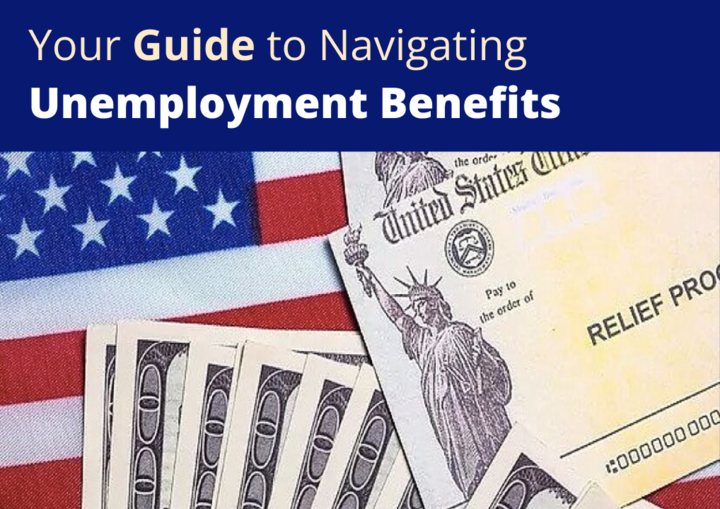Navigating the real estate market requires a comprehensive understanding of its dynamics, trends, and fluctuations.
Buyers must familiarize themselves with local market conditions, including average home prices, inventory levels, and the rate of sales.
For instance, in a seller’s market, where demand outstrips supply, homes may sell quickly and often above asking price.
Conversely, in a buyer’s market, where there are more homes available than buyers, purchasers may have the leverage to negotiate better terms. Understanding these nuances can significantly impact a buyer’s strategy and decision-making process. Moreover, it is essential to analyze historical data and current trends to predict future movements in the market.
For example, if a particular neighborhood has seen consistent appreciation over the past decade, it may indicate a stable investment opportunity. Additionally, factors such as local economic conditions, employment rates, and demographic shifts can influence market behavior. By keeping an eye on these indicators, buyers can make informed decisions about when and where to purchase a home, ensuring they are not only reacting to the present but also anticipating future developments.
Key Takeaways
- Understand the current market conditions and trends before making any decisions
- Get pre-approved for a mortgage to show sellers you are a serious and qualified buyer
- Work with a real estate agent who has experience and knowledge of the local market
- Be prepared to act quickly when you find a property you are interested in
- Make a strong offer that is competitive and appealing to the seller
Get Pre-Approved for a Mortgage
Understanding the Pre-Approval Process
Pre-approval involves a lender assessing a buyer’s financial situation, including income, credit score, and debt-to-income ratio, to determine how much they are eligible to borrow. This process not only provides buyers with a clear understanding of their budget but also signals to sellers that they are serious and financially capable of completing the transaction.
Establishing Credibility and Expediency
In addition to establishing credibility with sellers, pre-approval can expedite the buying process. Once a buyer finds a property they wish to purchase, having pre-approval in hand allows them to move quickly, which is often crucial in fast-paced markets where homes can receive multiple offers within days of listing.
Identifying and Addressing Potential Issues
Furthermore, pre-approval can help buyers identify any potential issues with their credit or finances early on, allowing them to address these concerns before they become obstacles in the home-buying journey.
Work with a Real Estate Agent
Engaging a knowledgeable real estate agent can be one of the most beneficial decisions a buyer makes during their home search. A seasoned agent brings invaluable expertise to the table, including an understanding of local market trends, pricing strategies, and negotiation tactics. They can provide insights into neighborhoods that align with the buyer’s preferences and budget while also identifying properties that may not be widely advertised.
This insider knowledge can be particularly advantageous in competitive markets where desirable homes are snapped up quickly. Moreover, a real estate agent serves as an advocate for the buyer throughout the entire process. They can help navigate complex paperwork, coordinate inspections, and communicate with other parties involved in the transaction.
For instance, if issues arise during an inspection, an experienced agent can advise on how to address these concerns effectively or negotiate repairs with the seller. Their guidance can alleviate much of the stress associated with buying a home and ensure that buyers make informed decisions at every stage of the process.
Be Prepared to Act Quickly
In many real estate markets, particularly those that are hot or competitive, timing is everything. Buyers must be prepared to act swiftly when they find a property that meets their criteria. This readiness involves not only having pre-approval in place but also being mentally and logistically prepared to make an offer as soon as possible.
Homes can receive multiple offers within hours of being listed, so hesitation can lead to missed opportunities. To facilitate quick action, buyers should have their priorities clearly defined before beginning their search. This includes knowing what features are non-negotiable versus those that would be nice to have.
By having a clear vision of what they want, buyers can make decisions more efficiently when they encounter potential homes. Additionally, staying connected with their real estate agent and being proactive about viewing new listings can help buyers stay ahead of the competition.
Make a Strong Offer
When it comes time to make an offer on a property, presenting a strong proposal is essential for standing out in a crowded field of potential buyers. A strong offer typically includes not only an attractive price but also favorable terms that appeal to the seller’s needs.
For example, offering a larger earnest money deposit can demonstrate serious intent and financial capability.
Additionally, being flexible with closing dates or accommodating the seller’s timeline can make an offer more appealing. Buyers should also consider including escalation clauses in their offers. An escalation clause automatically increases the offer price up to a specified limit if competing bids are received.
This strategy allows buyers to remain competitive without overcommitting from the outset. Ultimately, crafting a compelling offer requires careful consideration of both price and terms while also taking into account the seller’s motivations and circumstances.
Consider Waiving Contingencies
The Risks of Waiving Contingencies
For instance, waiving an inspection contingency means that buyers forfeit their right to negotiate repairs or back out of the deal based on findings from a home inspection. This could lead to unforeseen expenses if significant issues are discovered after closing. Similarly, waiving financing contingencies could put buyers at risk if their loan does not go through for any reason.
Understanding the Implications
Therefore, while waiving contingencies can enhance competitiveness in bidding wars, it is crucial for buyers to fully understand the implications and ensure they are comfortable with the risks involved.
A Balanced Approach
Buyers must carefully consider the pros and cons of waiving contingencies and weigh the potential benefits against the potential risks. By doing so, they can make informed decisions that meet their needs and goals in a competitive real estate market.
Write a Personal Letter to the Seller
In addition to making a strong financial offer, buyers may consider writing a personal letter to the seller as part of their bid package. This letter serves as an opportunity for buyers to connect on a personal level and convey their genuine interest in the property. By sharing their story—why they love the home, how it fits into their life plans, or even details about their family—buyers can create an emotional appeal that resonates with sellers.
Sellers often have sentimental attachments to their homes and may prefer offers from buyers who appreciate the property’s history and character. A heartfelt letter can differentiate one offer from another in situations where multiple bids are on the table. However, it is essential for buyers to strike a balance between personal storytelling and professionalism; overly emotional or lengthy letters may detract from the seriousness of their offer.
Stay Positive and Persistent
The journey of buying a home can be fraught with challenges and setbacks, making it vital for buyers to maintain a positive attitude throughout the process. Rejections from sellers or losing out on preferred properties can be disheartening; however, resilience is key in navigating these obstacles. Buyers should remind themselves that finding the right home often takes time and that each experience contributes valuable lessons toward achieving their goal.
Persistence is equally important in this endeavor. Buyers should remain proactive in their search by continuously exploring new listings and staying engaged with their real estate agent. If initial offers are unsuccessful, they should not hesitate to reassess their strategy or broaden their search criteria.
The right home is out there; it may just require patience and determination to find it amidst the complexities of the real estate market.
FAQs
What is a competitive housing market?
A competitive housing market is one in which there are more buyers than there are available homes for sale. This can lead to bidding wars and homes selling for above the asking price.
What are some tips for buying a home in a competitive market?
Some tips for buying a home in a competitive market include getting pre-approved for a mortgage, working with a real estate agent, being flexible with your preferences, making a strong offer, and being prepared to act quickly.
Why is it important to get pre-approved for a mortgage in a competitive market?
Getting pre-approved for a mortgage shows sellers that you are a serious buyer and can afford the home. This can give you an advantage over other buyers who are not pre-approved.
How can working with a real estate agent help in a competitive market?
A real estate agent can provide valuable insight into the local market, help you navigate the home buying process, and negotiate on your behalf. They can also help you act quickly when a new home comes on the market.
What does it mean to be flexible with your preferences in a competitive market?
Being flexible with your preferences means being open to considering homes that may not meet all of your criteria. In a competitive market, it’s important to prioritize what’s most important to you in a home.
Why is it important to make a strong offer in a competitive market?
In a competitive market, making a strong offer can help you stand out from other buyers. This may involve offering a higher price, including fewer contingencies, or being flexible with the closing timeline.
How can I be prepared to act quickly in a competitive market?
Being prepared to act quickly in a competitive market involves having all of your financial documents in order, being available to view homes on short notice, and being ready to make an offer as soon as you find a home you like.







